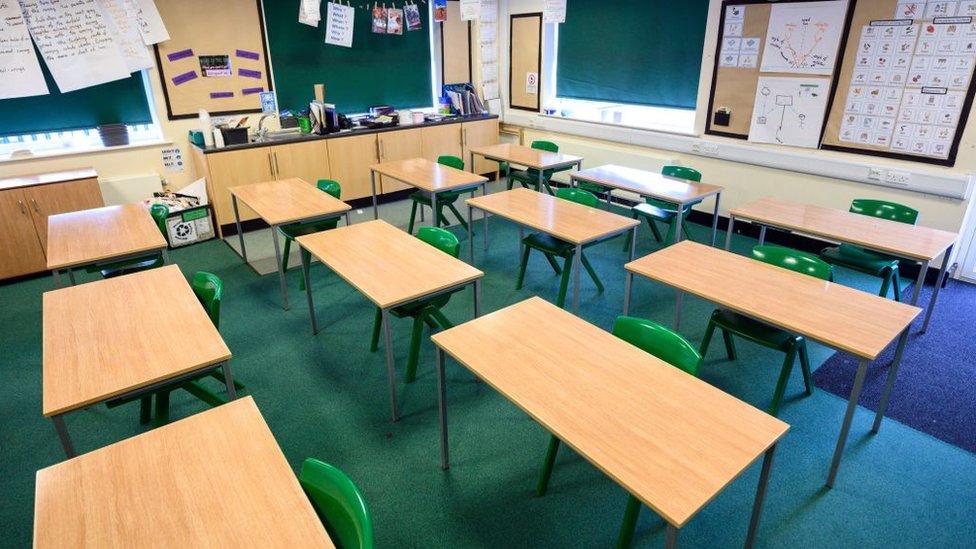Covid: Wales' schools return 'needs more local Covid science work'
- Published
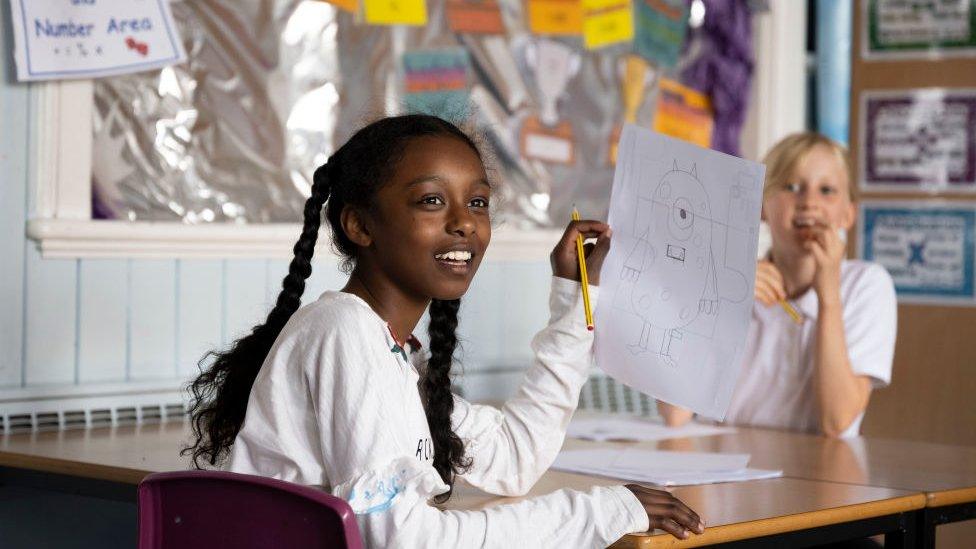
A teaching union wants to see "granular modelling of the science" around Covid transmission ahead of pupils' to return to school.
First Minister Mark Drakeford said some children could begin a phased return to school if Covid rates continue to fall.
But the Association of School and College Leaders Cymru (ASCL) wants to know more about the impact a return to face-to-face teaching in schools.
The Welsh Government says it "considers all of the latest scientific evidence".
On Friday, Mr Drakeford said the youngest primary school pupils may be able to return to the classroom from 22 February.
He also said he hoped older pupils and college students who had to do vocational examinations could also have a phased return to schools and colleges after half-term.
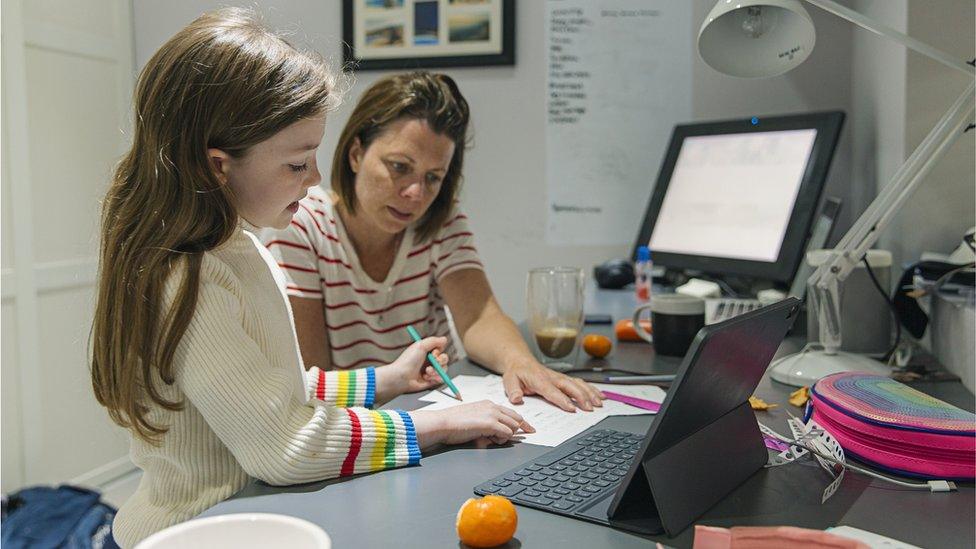
Most children in Wales have had their teaching online since lockdown was announced in December
He warned the situation could still change, adding "things we don't know about today could emerge, even before half-term" and saying he "understands the anxieties" staff might have in returning to the classroom.
Mr Drakeford wants to give "two clear weeks' notice" about plans for a phased return, with meetings being held this week between government officials, the unions, local education authorities and the children's commissioner.
Speaking on BBC Radio Wales' Sunday Supplement programme, the ASCL welcomed the "cautious approach".
Eithne Hughes, the teaching union's director, said they were "broadly supportive" that younger children return to school first as "there are developmental, emotional and social skills that are really difficult for little ones to actually get" whilst not at school.
As well as a drop in Covid-19 case numbers, Ms Hughes said she wanted to see "much more granular modelling of the science to see exactly what the potential effect" of pupils' returns would be.
'Contingency plans'
"What we don't want is children, going back into their homes being a vector for further spread within the communities," she said.
Garem Jackson, Gwynedd Council's head of education, said: "We have already spoken to our federation of primary head teachers I did so personally on Friday.
"We had contingency plans, regionally across the north and I'm sure across the rest of Wales as well for either a gradual return, a full return or whatever it may be."
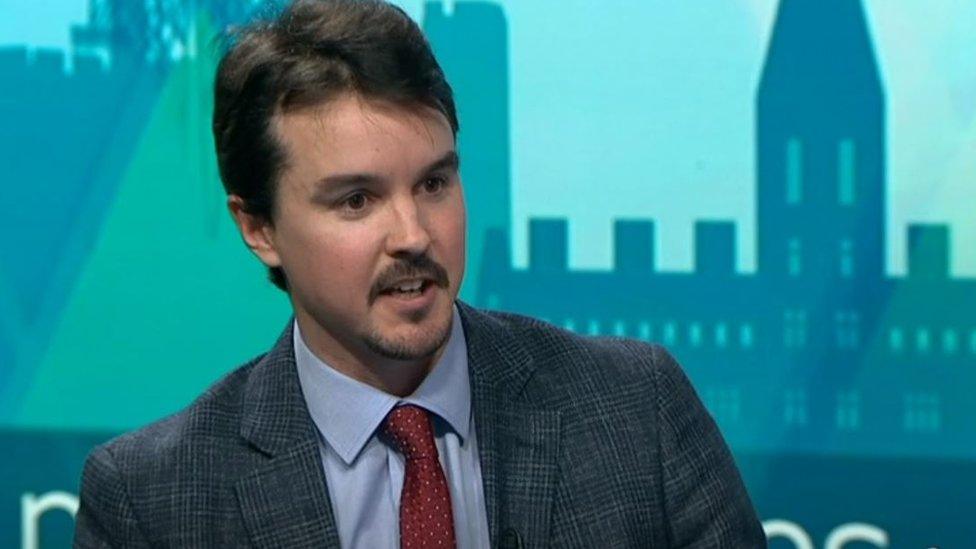
Gareth Evans said remote learning is "no substitute" for face-to-face teaching
Speaking on the BBC Politics Wales programme, Gareth Evans, Director of Education Policy at the University of Wales Trinity St David's said: "Remote learning is no substitute for face-to-face teaching and the sooner we can get children back in to school the better.
"We need to know why things are markedly different now than they were in December and why things have improved to such an extent that we can go back.
"Transmission rates have improved to such an extent now that going back is a realistic possibility."

BITESIZE CYMRU WALES: Educational programmes in English and Welsh
LOCKDOWN LEARNING: How can BBC Bitesize help you learn from home?

Summer schooling 'not discussed'
He said allowing pupils to catch-up on their education would be "a huge challenge" and head teachers needed extra funding "to support individual learners to make up ground on where they've lost."
On Friday, Mr Drakeford said the Welsh Government is continuing to look at the option of some pupils going back to school early from the summer holidays.
But Eithne Hughes told BBC Radio Wales summer schooling "has not been discussed at all, at any level."
"There has been already an enormous effort...to really pull out all the stops and they have already given a huge amount, and time and energy and emotional effort, in making sure that schools are in the place they're at today, and schools remember aren't shut," she added.
Mr Evans said it was "disappointing" officials had not discussed the possibility of a shortened summer break.
"For too often during this pandemic we've been on the back foot. It's time to get back on the front foot and start planning ahead," he said.
A Welsh Government spokesman said a "phased and flexible approach" was being taken.
"[It] allows us to consider all of the latest scientific evidence, which of course will guide discussion and decision-making over the coming days and weeks," he said.
"It should also be noted that there is increasing international evidence and good practice - across North America and Europe in particular - of safe and secure school re-openings."
Related topics
- Published29 January 2021
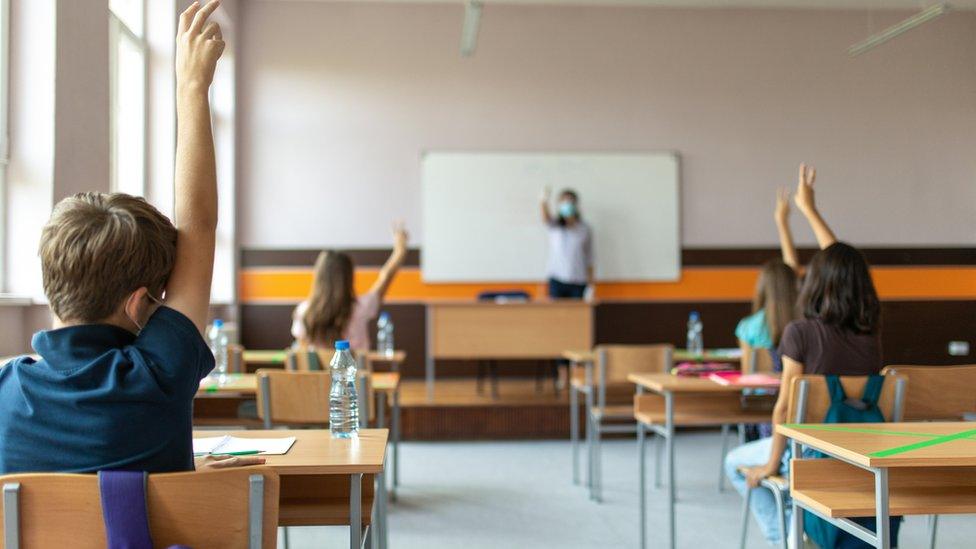
- Published26 January 2021
